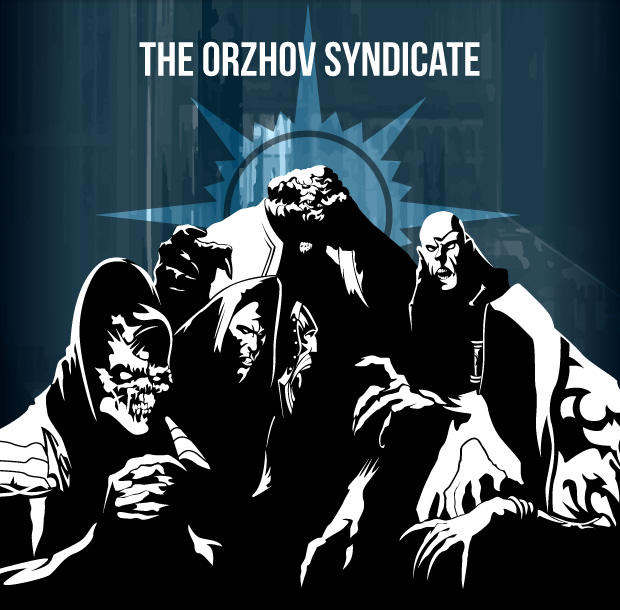A staggering amount of Magic content is published each day each day on a plethora of content sites, blogs, podcasts, and discussion forums. No matter how honest an effort you make, it's easy to fall behind and miss incredible articles because there just isn't enough time to read everything.
To that end, we've collected some of the best articles of the week covering a broad range of topics. If you're looking for articles, these are the ones you don't want to miss!
On Reading and Magic
What do books have to do with Magic? Quite a bit, according to Alexander Shearer. His article focused on books that help you up your mental game, improve your focus, and play to your strengths. All are skills valuable not only in Magic but life as well.
ChannelFireball.com: Alexander Shearer (@parakkum) - Read Books, Play Better
How do you get this focused?
Clearly, focus is critical for good gameplay. You need attend to the game state, to your opponent’s plays, to their potential plays, to the cards in your hand (and deck, and graveyard…), to your life totals, and more. You also need to be able to filter out background noise, the guy next to you who keeps bumping your elbow, and nearby judge calls that have nothing to do with you.
…and at a PTQ or other, bigger event, you need to do this for nine or more hours—longer than a typical workday.
So how do you get that focused?
On Bannings and Implications
Patrick Sullivan's love of aggressive red decks is well known. What's less known is that he is a game designer that includes work on the World of Warcraft TCG. This week he discussed the modern bannings from the perspective of not only a player, but as a designer and developer as well. What do the bannings mean for the future of a format?
Starcitygames.com: Patrick Sullivan - On The Modern Banned List
There's one issue, though, on which I can't defend R&D. That's the Modern banned list.
On Invisible Stalkers and Atlantic City
It's been two weeks since Jon Stern took Grand Prix Atlantic City by storm with a Bant Hexproof deck, taking down a mirror match against Josh Utter-Leyton in the finals. This week Jon detailed his tournament experience, from testing and deck selection all the way through to the trophy.
ManaDeprived.com: Jon Stern (@JonSternMTL) - Auras in Atlantic City
A corollary of that thought is the idea that if both players play perfect Magic, the outcome is completely scripted once you shuffle and present. Instead of looking at skill as the ability to outplay opponents, you can imagine measuring it by the amount your plays deviate from this ideal script. While it won’t guarantee victory, perfect play will maximize your long-term results.
What I’m getting at is that there are games of Magic that should be won, even against a perfect opponent. That’s how I felt in Atlantic City. I essentially won the tournament on Wednesday when I started testing Bant Hexproof. From that point on, all I had to do over the course of the weekend was hold serve.
On Crashing Gates and Poetry
Michael Radzwilla is a regular contributor for MTGOAcademy, producing Pauper videos featuring some pretty sweet brews. For Return to Ravnica and Gatecrash, he traded his digital commons for a poetic keybaord and produced guild-themed limericks that capture the spirit of the City of Guilds.
MTGOAcademy.com: Michael Radzwilla - Five Gatecrash Guild-Themed Limericks
there’s one thing to which we aspire:
With swords set ablaze
to fight for the ways
of the just and its radiant fire.
On Guilds and Resonance
Natasha's research-based articles are always very interesting, providing unique insights into the structure and behavior of the Magic community. This time Natasha turned her attention to Ravnica, and discussed why the guilds and their themes are so well-liked by Magic players, as well as why different guilds resonate with different kinds of players and people.
GatheringMagic.com: Natasha Lewis Harrington (@natasha_lh) - Wisdom of Guilds
In my mind, they represent a pursuit of passion in a way that the roles of other planes don’t seem to. The guilded characters of Ravnica live their lives with a clear sense of purpose, embracing their aptitudes and interests and pursuing them as far as humanly possible. This leads to vibrant institutions and a diverse, interdependent world.
On Gatecrash and Infographics
James Arnold and his well-designed infographics are incredible in the way that they condense and present detailed of information in way that's fun and easy to follow. This time he went in-depth on Gatecrash, and provided us with things you should know about the newest Magic expansion.
GatheringMagic.com: James Arnold (@thatguyjames2) - Gatecrash: An Infographic

On Limited and Removal
Every few months we get a new Limited format to solve, and who better to talk about approaching new Limited formats than Marshal Sutcliffe. Marshall is best known for his podcast, Limited Resources, as well as his contributions to Pro Tour coverage and, most recently, his column on DailyMTG.com. In his latest article, Marshall described how he approaches a new format by studying the commons and uncommons, and how a format is defined by what kinds of removal are available.
DailyMTG.com: Marshall Sutcliffe (@Marshall_LR) - Choose Your Weapons
No, that responsibility falls on our friends, the commons and uncommons.
If you have suggestions for next week's recap you can send them through to us on Twitter, or share throughout the week in the comments below.




















